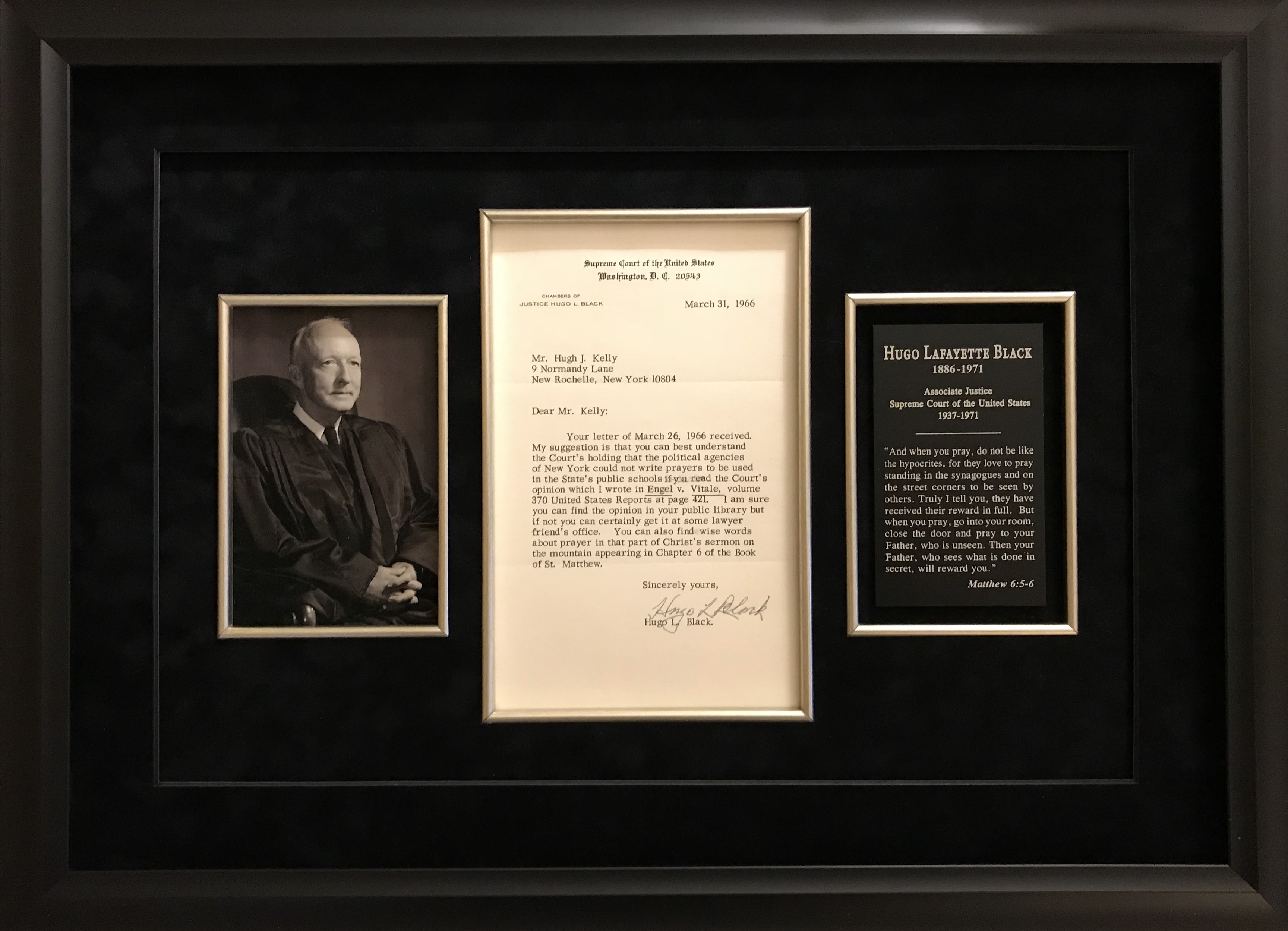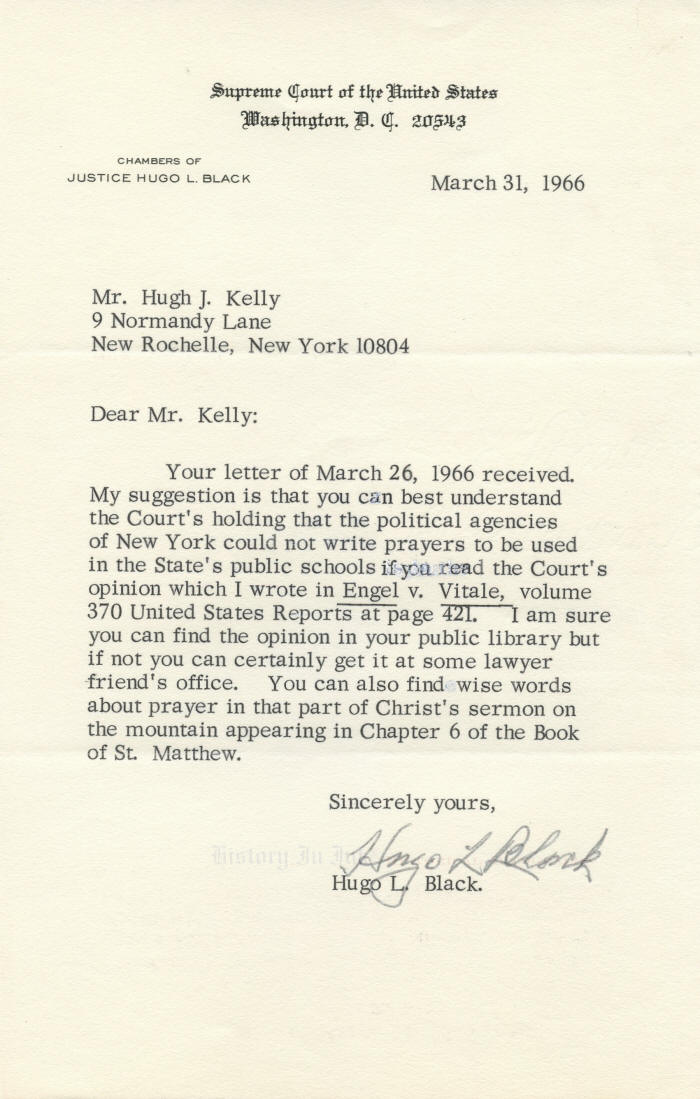

1529301
Hugo L. Black
Exceptional letter by Justice Black regarding his opinion
in the Supreme Court’s school prayer decision—and referring to the Bible
Hugo Lafayette Black, 1886–1971. Senator from Alabama, 1927–1937; Associate Justice, United States Supreme Court, 1937–1971. Superb Typed Letter Signed, Hugo L. Black, one page, 5¼” x 9”, on stationery of the Supreme Court of the United States, Washington, D.C., March 31, 1966.
This is an outstanding letter in which Justice Black responds to a question about prayer in schools from Hugh J. Kelly, executive vice president of textbook publisher McGraw-Hill. Justice Black refers Kelly to both the Supreme Court’s 1962 school prayer decision, Engel v. Vitale, and the Bible. He writes, in part: “My suggestion is that you can best understand the Court’s holdings that the political agencies of New York could not write prayers to be used in the State’s public schools if you read the Court’s opinion which I wrote in Engel v. Vitale . . . . You can also find wise words about prayer in that part of Christ’s sermon on the mountain appearing in Chapter 6 of the Book of St. Matthew.”
In Engel, 370 U.S. 421 (1962), the Supreme Court held that the state of New York could not compose an official state prayer and require that it be recited in the state’s public schools at the beginning of each school day. It made no difference, the Court said, that the prayer was denominationally neutral and that students had the right to remain silent or be excused from the room while the prayer was recited. Justice Black’s opinion for the 6–1 majority held that New York’s daily prayer program constituted a “religious activity” and that use of the public school system to encourage the recitation of the prescribed prayer was wholly inconsistent with the First Amendment prohibition against governmental establishment of religion. Black wrote:
The First Amendment was added to the Constitution to stand as a guarantee that neither the power nor the prestige of the Federal Government would be used to control, support or influence the kinds of prayer the American people can say—that the people's religions must not be subjected to the pressures of government for change each time a new political administration is elected to office. Under that Amendment's prohibition against governmental establishment of religion, as reinforced by the provisions of the Fourteenth Amendment, government in this country, be it state or federal, is without power to prescribe by law any particular form of prayer which is to be used as an official prayer in carrying on any program of governmentally sponsored religious activity.
Id. at 429–30. Justice Potter Stewart dissented. Two Justices, Felix Frankfurter and Byron R. White, did not participate in the decision.
Kelly (1905–2001) had a natural interest in the topic of school prayer and in Engel in particular. He was Catholic, lived in New York, and was a senior executive of an education publisher. He joined McGraw-Hill in 1927 and led two different McGraw-Hill divisions before becoming a member of the companyʼs board of directors in 1949, a corporate vice president in 1953, and the executive vice president in 1956. He also served as a director of the Columbia University Press.
Letters from a Justice relating to an opinion in a particular case are very scarce. This one is exceptional because of the importance of the subject of school prayer, which continues to draw public attention more than 50 years after Engel.
The letter is virtually pristine. It has only two normal horizontal mailing folds, neither of which affects Black’s signature in black ballpoint pen. The words “if you read” have been typed over white out that appears to have been used to correct a typographical error in the letter. The letter is in very fine condition, and it would be extra fine were it not for the folds.
The letter is richly double matted in black suite with an inlaid silver tone wood fillet, a portrait of Justice Black, and an engraved identification plate that includes verses from Matthew Chapter 6, to which the letter refers. It is framed in a Mid-Century Modern style black wood frame.
_____________
This item has been sold.
Click here to see other Supreme Court items
that we are offering.



